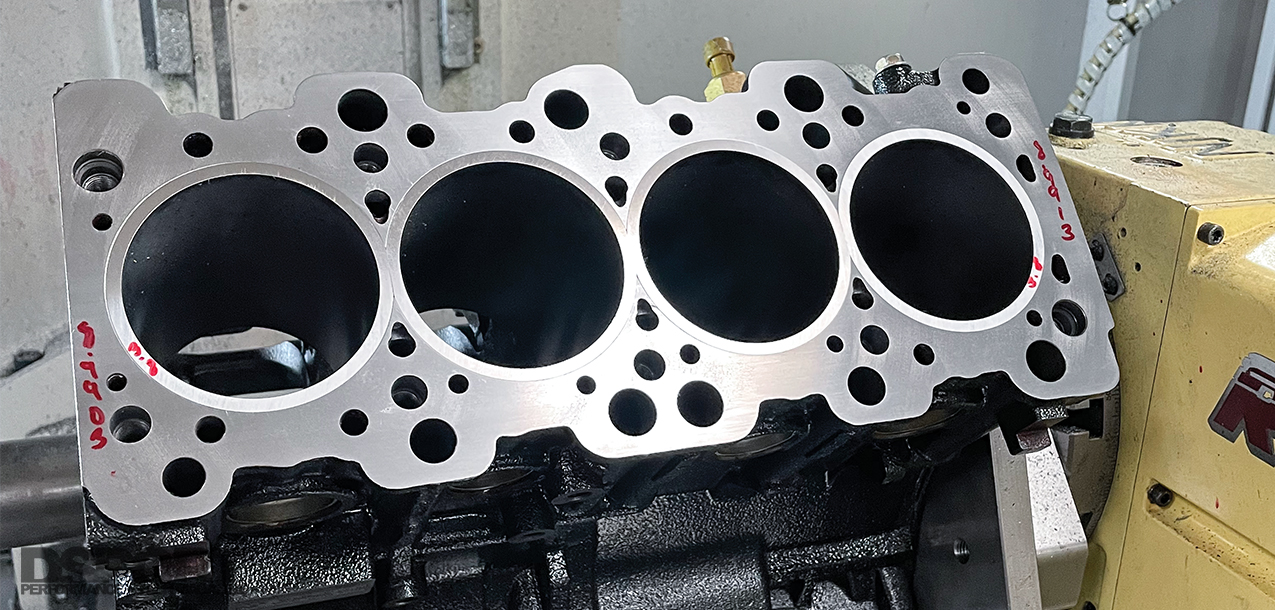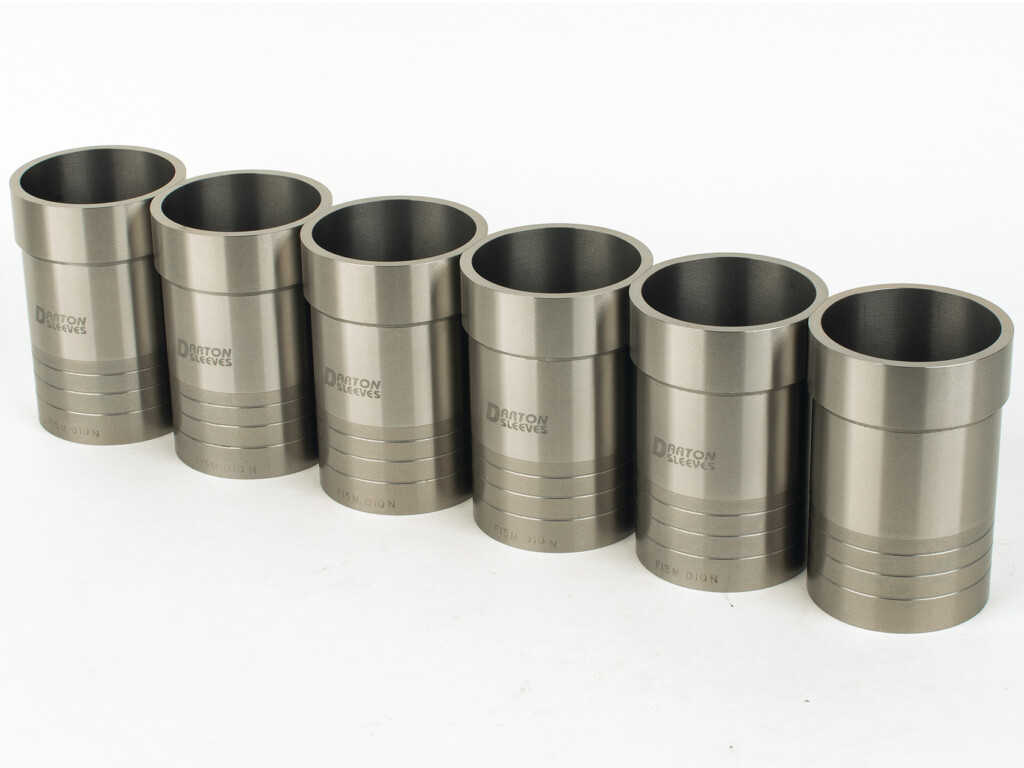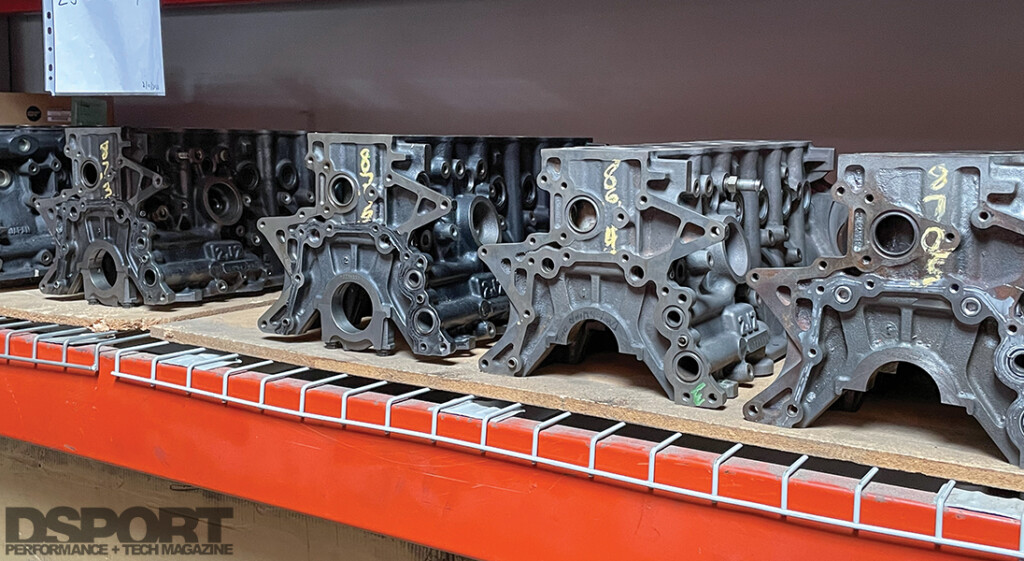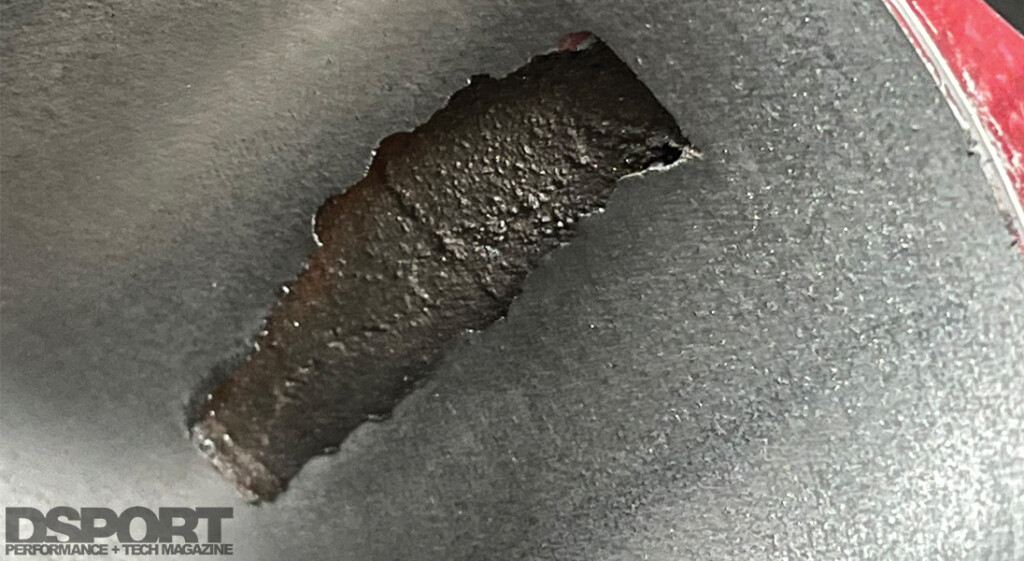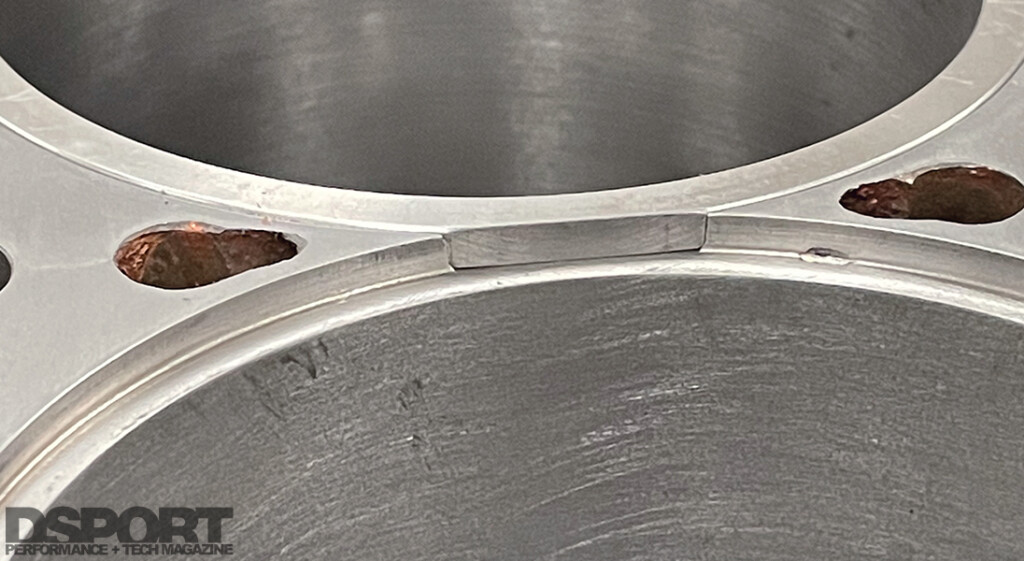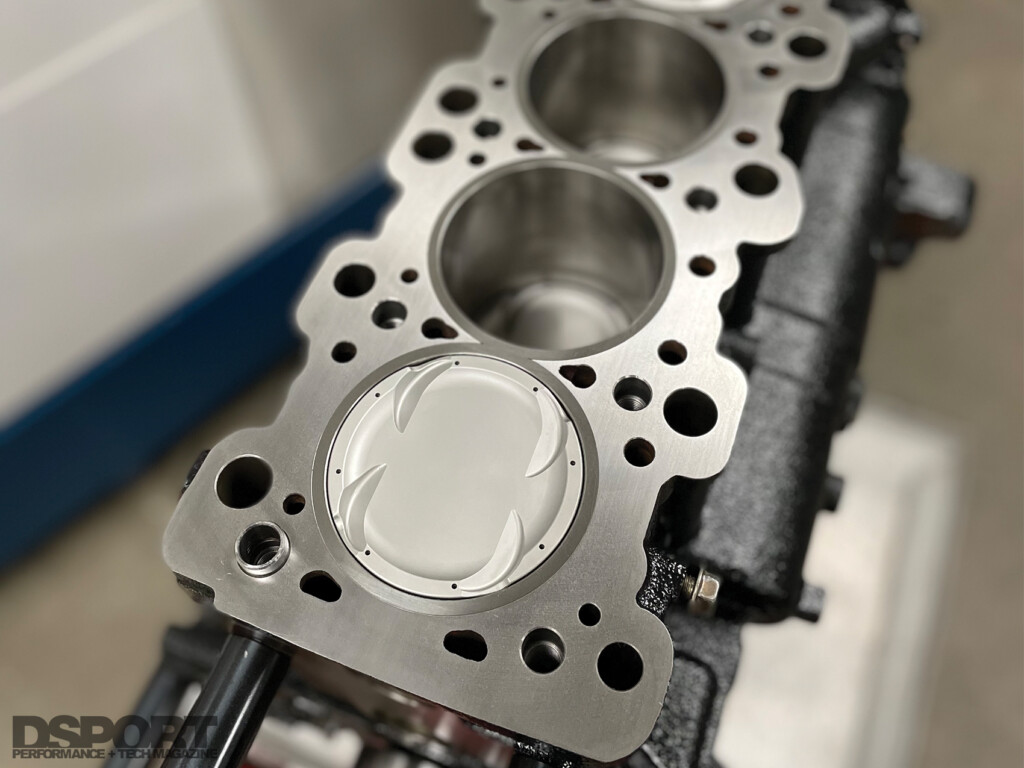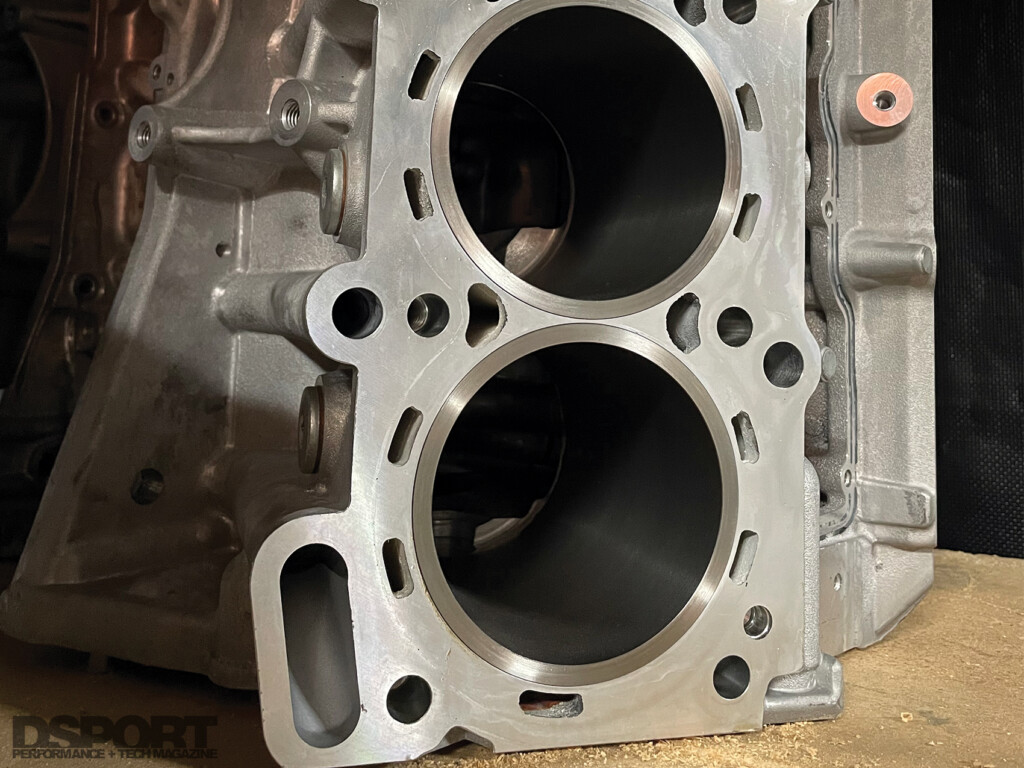2JZ, RB26, 4G63, B-series, SR20 and now even K-series and 4B11 are becoming harder and harder to find. Until a few years ago, finding good used core engines or cheap Japanese import engines was relatively easy. If you didn’t have luck locating one, purchasing a new block from the dealership was still affordable. Those days are gone. RB26, 2JZ and 4G63 blocks are no longer available new from the dealer. Some of these blocks still exist in personal stashes but the price has double, tripled or even gone to five times the original pricing. Less desirable RB25 and 1JZ engines have gained popularity to the point where many of these engines are above the former asking price of RB26 and 2JZ engines. With the B-series, SR20, K-series and 4B11, availability is also getting scarce. Most B-series engines that you find have been to Hell and back while SR20, K-series and 4B11 engines are getting more expensive each day. Fortunately, Club DSPORT has been performing some miracles over the past year that has turned previously considered “junk” into high-horsepower treasure.
Text by Michael Ferrara
DSPORT Issue #245
This set of Darton Sleeves is for the 2JZ engine. These can be used to upgrade and refresh any 2JZ block even if it has been overbored to 87.5mm.
Pull-Up Your Sleeves
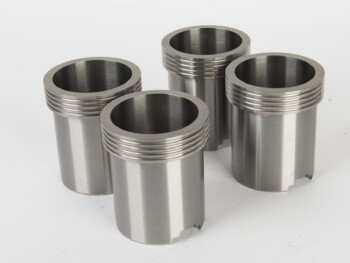 With aluminum engine blocks, a few savvy enthusiasts have learned that cracked cylinder engines may be given a new lease on life through the proper machining and installation of aftermarket performance sleeves. At Club DSPORT we have saved B-series, K-series, 4B11 and SR20 engines with cracked and brutalized cylinders. Depending on the application and the intended type of racing, there are many off-the-shelf solutions available from Darton Sleeves and LA Sleeve. For special applications, we’ve also worked with both companies to make custom sleeves with special dimensions or upgraded materials. While not hard to find, new VR38 engine blocks have nearly tripled in price (literary overnight) recently. This put saving VR38 blocks on the top of our development list. With the right selection of off-the-shelf or custom sleeve, just about any aluminum block can be given a new lease on life. When done properly, the power handling and performance of the engine can also be increased in the process.
With aluminum engine blocks, a few savvy enthusiasts have learned that cracked cylinder engines may be given a new lease on life through the proper machining and installation of aftermarket performance sleeves. At Club DSPORT we have saved B-series, K-series, 4B11 and SR20 engines with cracked and brutalized cylinders. Depending on the application and the intended type of racing, there are many off-the-shelf solutions available from Darton Sleeves and LA Sleeve. For special applications, we’ve also worked with both companies to make custom sleeves with special dimensions or upgraded materials. While not hard to find, new VR38 engine blocks have nearly tripled in price (literary overnight) recently. This put saving VR38 blocks on the top of our development list. With the right selection of off-the-shelf or custom sleeve, just about any aluminum block can be given a new lease on life. When done properly, the power handling and performance of the engine can also be increased in the process.
In the past, 2JZ engine blocks that have gone beyond an 87mm bore size were considered scrap. Today, these blocks can be made better than new with the proper sleeves and machining operations.
That Sinking Feeling
Unfortunately, there are a number of machine shops that offer block sleeving services that don’t have the proper equipment or experience to deliver an issue-free experience. All machining for block sleeving should be performed on a 4-axis engine block machine center equipped with probing equipment. These machines typically run $200K plus with a minimal tool package so it can be beyond the budget of your local machine shop. When block machining for sleeves is performed on 3-axis and manual machines, the precise location of the sleeves cannot be controlled. If probing is absent in the CNC machine center, the manual locating of all the critical points is so time consuming that short cuts are often taken. The end result are sleeved engines that encounter head gasket failures due to sinking sleeves. Even when machine shops have the proper equipment, the procedure to properly machine the block for sleeves can be very time consuming. The bottom line is don’t pick the machine shop that gives you the best price. Pick the machine shop that does the best work or you’ll be paying to do the work over and over again.
Cracked cast-iron blocks cannot use a standard sleeve for repair. Club DSPORT is developing some custom sleeves to repair these failures in RB26, 2JZ and Buick V6 blocks.
Iron Deficiency
While sleeves have been available for cast-iron blocks for a number of years, they have typically been used to repair a single cylinder. The non-flanged repair sleeve is a no frill sleeve that is generally installed with the minimal amount of interference as to not overly distort the adjoining cylinders. These sleeves might be OK to fix a damaged cylinder, but these sleeves won’t help you if the cylinder is cracked. The reason is that these repair sleeves depend on the integrity of the original cylinder to hold the sleeve in place. If the original cylinder is cracked, it can no longer be relied upon to hold the repair sleeve in place. In those cases, opinions vary on if the block can still have a useful life and what that life can be.
Flanged sleeves add a flange that goes against a register machined in the block that can reduce the chances that the sleeve sinks in the block. Flanged sleeves can also be used to repair blocks that have seen damage on the deck near the cylinder. This damage can occur when O-ring grooves are machined too close to the cylinder bore. Given the choice in doing a repair always pay the extra money for the flanged sleeve and the additional machining cost to install it properly. The superior design of a flanged sleeve makes it a bit more forgiving for improper installation (insufficient interference fit) as the flange will not sink assuming that the register that the flange sits on is machined properly. Unfortunately, it may mask an improper machining and installation procedure a bit longer than an unflanged repair sleeve. The bottom line is that there are no shortcuts to do it right and time is money. If someone is willing to charge you less, they are likely to not be putting in the proper amount of time.
Rarely, will you see all the cylinders sleeved in a cast-iron block. The reason is that it takes two to three times the time to do it properly on a cast-iron engine versus an aluminum engine. In the past, it just wasn’t worth the time and effort to save a block in this way when a good used or new block was either less or just slightly more. Times have changed. Standard used 05U RB26 engine blocks used to be free to $400 when new RB26 05U blocks were under $700 from the dealer. N1 blocks were $1,500 new. Today, used RB26 05U blocks go for $800 to $1,500 depending on the bore size and condition while new 05U blocks are approaching $4,000 with N1 blocks approaching $8,000, if they can be found. Depending on the sleeve used (off-the-shelf or custom), the cost to properly sleeve an entire cast-iron block is going to run between $350-$700 per cylinder in most cases. When done right, you end up with a stock bore engine with thick cylinder walls made of a superior strength material.
Crack Solution
Recently, Club DSPORT has been testing some new custom sleeves to address cast iron blocks with cracked cylinders. Currently, Buick V6 and RB26 development is in testing. The hope here is that even the most severely damaged cylinders can be completely upgraded. If testing continues to show success, this may be offered to the public in 2023.
Flanged sleeves require a machined register in the deck of the block. The only proper way to machine a flat register is by use of a 4-axis CNC engine block machine center
Beyond the Bores
While sleeving can address wear and damage in most blocks, other items will need attention to bring a block back to new or better-than-new specs and tolerances. The engine’s main bores will often need attention to ensure proper alignment and sizing for high performance use. Vertical line boring on a CNC is the best process as it will deliver the straightest and most consistent results when done properly. In fact, Club DSPORT also uses this procedure even on brand new engine blocks to deliver a higher degree of precision over the factory mass production assembly line.
Other items that need to be considered when rejuvenating an engine block are all the threaded holes as well as all the machined surfaces of the block. All the threaded holes need to be reconditioned or repaired to meet or exceed OEM capabilities. All machine surfaces must be inspected for damaged and straightness. If an engine block has been decked too much, it may lack the strength needed to keep head gaskets from failing. If the pan rails are not straight or damaged, there could be big problems in the future or at the very least annoying oil pan leaks.
Blocks that have been overheated can often turn into money pits. A severely overheated aluminum block (or cylinder head) can lose its hardness. These soft blocks can have issues with keeping dimensional stability or may cause a sleeve to sink. Before starting any machine work on an aluminum block of unknown history, make sure the machine shop can do a hardness test. This takes a specialized tester that many machine shops do not have so call around first.
The Bottom Line
Do you believe in reincarnation? Do you believe in zombies? When it comes to engine blocks, both are real. A “dead” or “junk” engine block can be reincarnated to live again. With proper attention, parts selection and machine work, it can have more success in its new life than it had in its previous life. However, when the wrong block, wrong parts or improper machine work is performed, that “dead” block will never be brought back to live. Instead, it will only become “undead” in a Zombie state. Instead of craving brains, the Zombie will be feeding off your wallet until you cut off its head. Hopefully, DSPORT readers will use this knowledge to avoid a Zombie apocalypse while saving those engine souls that deserve to be saved.


